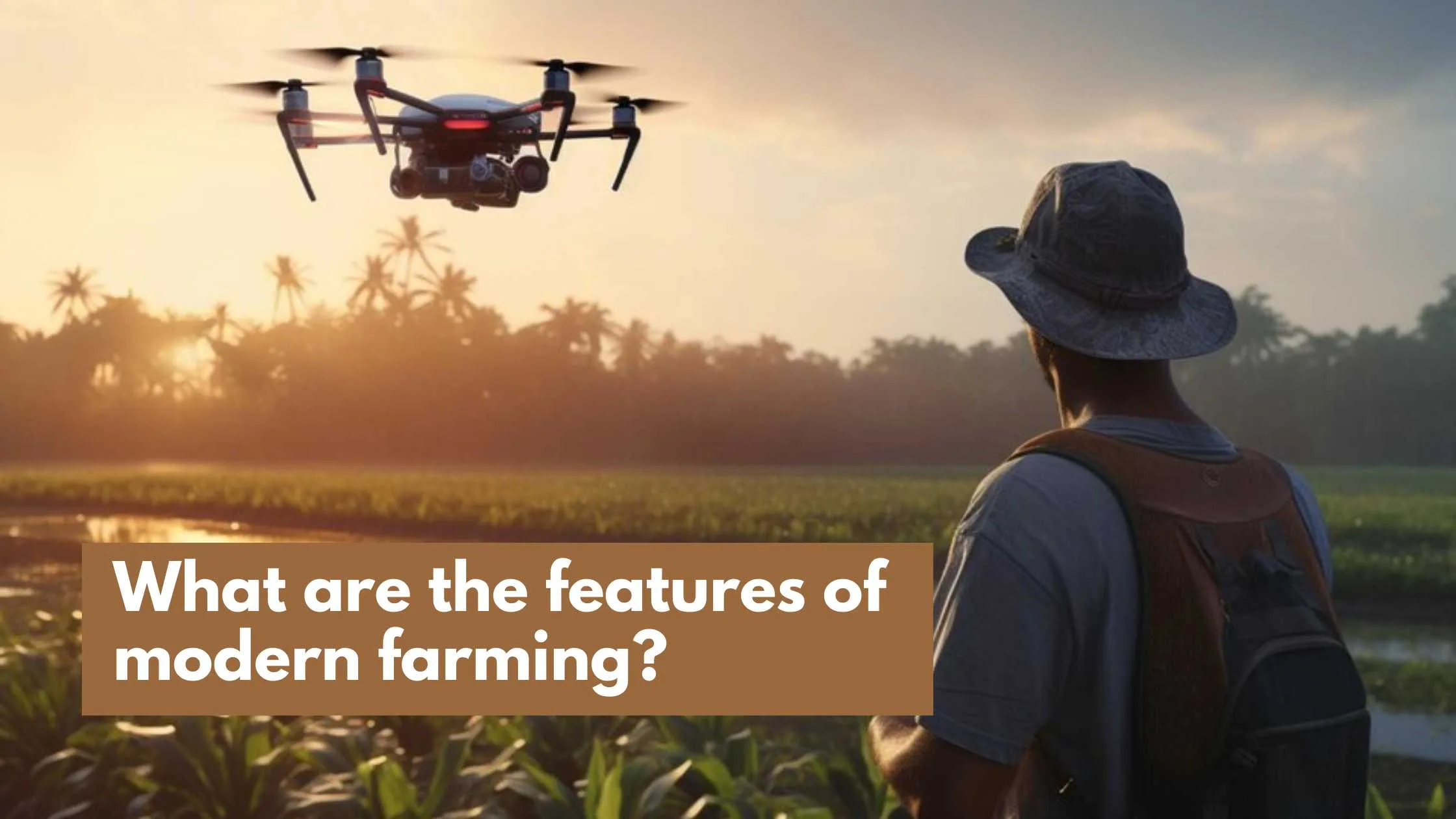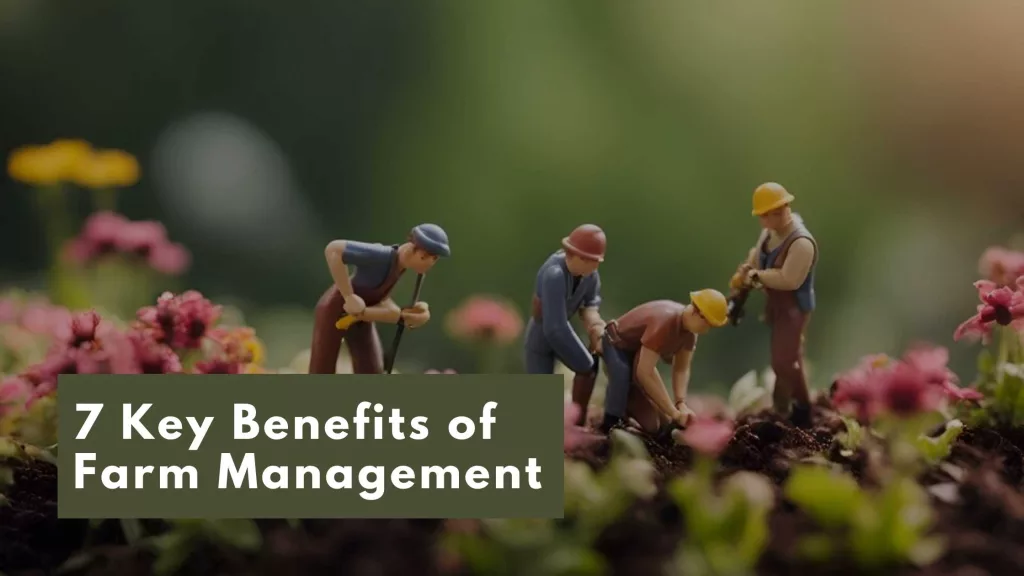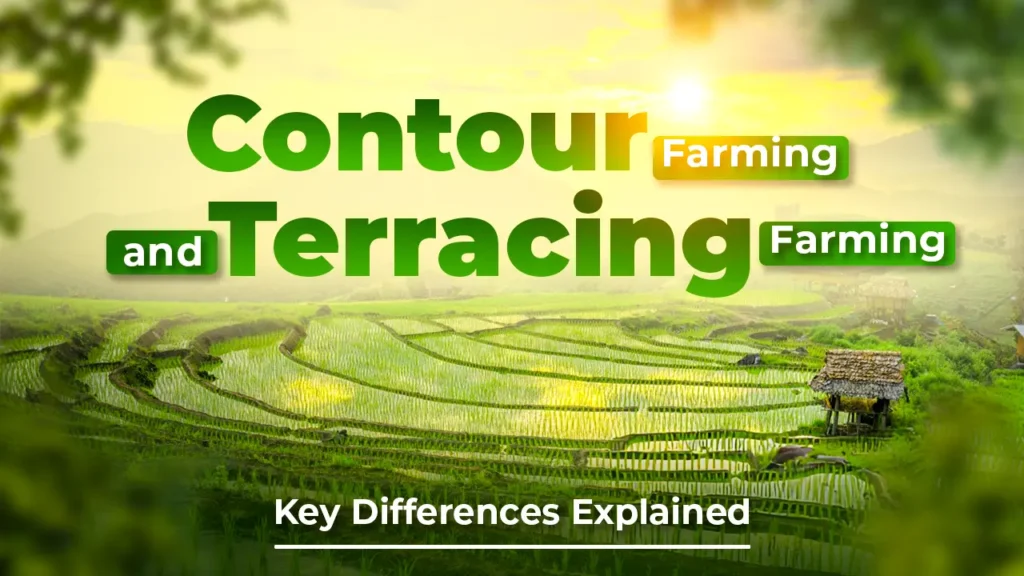What is modern farming?
Modern farming refers to the use of advanced technologies, practices, and techniques to increase efficiency, productivity, and sustainability in agriculture. Modern farming methods incorporate the latest technologies and scientific knowledge to optimize resource use and crop yields and reduce environmental impact. These methods include the use of precision agriculture, drones, GPS-guided tractors, crop protection products, genetically modified crops, sustainable farming practices, etc.
Modern farming has transformed agriculture by allowing farmers to produce more food with less labor and resources. It has played a crucial role in meeting the food demands of a growing global population.
What are modern farming methods?
Modern farming methods refer to the use of advanced technologies and techniques to increase agricultural productivity and efficiency. These methods often involve the use of machinery, chemical fertilizers, pesticides, and genetically modified crops.
Some examples of modern farming methods include:
Precision agriculture
This involves using sensors and other technologies to measure and monitor crop growth and soil conditions. Fore-generated decisions allow farmers to optimize the use of resources such as water, fertilizer, and pesticides.
Genetically modified crops
These are plants that have been genetically engineered to have specific traits, such as resistance to pests or drought.
Mechanization
This entails using machines to carry out previously manual tasks like planting, harvesting, and irrigation.
Sustainable farming practices
These include techniques such as crop rotation, cover cropping, and integrated pest management. The techniques aim to reduce the use of chemical inputs and promote soil health.
Overall, modern farming methods are designed to increase efficiency and productivity while minimizing environmental impact.
What are the features of the modern farming system?
Modern farming systems have distinct features that set them apart from traditional farming methods. The characteristics of modern agriculture include:
Use of technology
Modern farming systems use advanced technologies, such as precision agriculture, drones, and GPS-guided tractors. These technologies help farmers to improve crop yields, reduce waste, and optimize resource use.
Large-scale production
Modern farming systems are often characterized by large-scale production. farms covering hundreds or thousands of acres and using advanced machinery to manage crops.
Specialization
Modern farms often specialize in the production of a single crop or livestock species. Allowing farmers to make more efficient use of resources and achieve greater production efficiency.
High use of inputs
Modern farming systems often rely heavily on inputs such as chemical fertilizers, pesticides, and herbicides to improve crop yields.
Increased efficiency
Modern farming systems aim to increase efficiency through the use of advanced technologies, specialized equipment, and optimized management practices.
Sustainability
Modern farming systems often focus on sustainable farming practices, such as conservation tillage, cover cropping, and integrated pest management. These systems are used to reduce environmental impact and improve long-term viability.
Overall, modern farming systems are characterized by the use of technology, large-scale production, specialization, high input use, increased efficiency, and a focus on sustainability.
Important tools used in modern farming
Modern farming relies on a range of tools and technologies to increase efficiency, productivity, and sustainability. Some of the most important tools used in modern farming include the following:
Tractors and other machinery
Tractors and other machines, such as combiners, cultivators, and planters, are used to perform a variety of tasks. These tasks include planting, harvesting, and soil preparation.
Precision agriculture technologies
This includes technologies such as GPS-guided tractors, drones, and soil sensors. Those technologies help farmers optimize crop yields by collecting and analyzing data on soil conditions, weather, and crop growth.
Irrigation systems
Modern farms often rely on advanced irrigation systems to deliver water to crops more efficiently and effectively.
Crop protection products
Chemical fertilizers, pesticides, and herbicides, which help farmers protect crops from pests and diseases and improve crop yields.
Genetically modified crops
These are crops that have been genetically engineered to have specific traits, such as resistance to pests, drought, or herbicides.
Livestock management tools
Tools such as automatic feeders and milking machines help to improve efficiency and reduce labor costs in livestock farming.
Sustainable farming practices
Techniques such as conservation tillage, cover cropping, and integrated pest management help reduce environmental impact and promote long-term sustainability.
Overall, modern farming relies on a range of tools and technologies to improve efficiency, productivity, and sustainability.
Advantages of modern farming
Modern farming has several advantages over traditional farming practices. Some of the key advantages of modern farming include:
Increased efficiency
Modern farming methods are designed to increase efficiency and productivity, resulting in higher crop yields and lower costs of production.
Improved food quality and safety
Modern farming practices allow for more consistent and higher-quality crops. And the use of pesticides and other crop protection products helps to reduce the risk of foodborne illness.
Reduced environmental impact
Modern farming practices, such as precision agriculture and sustainable farming techniques, can help reduce the environmental impact of farming. They reduce environmental effects by minimizing water use, reducing soil erosion, and reducing the use of chemical inputs.
Better use of resources
Modern farming practices allow for better use of resources such as water, fertilizer, and energy. This results in lower costs and more sustainable use of these resources.
Increased food production
Modern farming methods are necessary to increase food production and meet the needs of a growing population. As the world’s population continues to grow,.
Improved livelihoods
Modern farming practices can help improve the livelihoods of farmers by increasing their income and providing greater job security.
How modern farming has helped farmers
Modern farming has helped farmers in several ways, including:
Increased efficiency and productivity
Modern farming methods have made it possible for farmers to produce more food with less labor and lower costs. This results in higher yields and greater profitability.
Improved crop quality and safety
The use of modern technologies and crop protection products has improved the quality and safety of crops. This has reduced the risk of foodborne illness and increased consumer confidence.
Better use of resources
Modern farming practices, such as precision agriculture and sustainable farming techniques, help farmers make more efficient use of resources. It is resulting in lower costs and more sustainable use of these resources.
Access to new markets
Modern farming methods have made it possible for farmers to produce crops that meet the demands of new markets, such as organic or non-GMO crops.
Improved risk management
Modern farming methods, such as crop insurance and risk management tools, have made it easier for farmers to manage risks and protect their crops and income.
Increased job security
By increasing productivity and profitability, modern farming has helped to create more stable and secure jobs for farmers and farm workers.
Overall, modern farming has helped farmers increase efficiency and productivity, improve crop quality and safety, make better use of resources, access new markets, manage risk, and increase job security.
What are the drawbacks of modern farming methods?
While modern farming methods have many advantages, there are also some potential drawbacks to consider. These drawbacks can include:
Environmental impact
The use of pesticides, herbicides, and fertilizers in modern farming can have negative impacts on the environment, such as pollution of waterways and harm to non-target species. Additionally, some modern farming practices can contribute to soil erosion, loss of biodiversity, and climate change.
Dependency on technology
Modern farming methods often rely on advanced technologies such as precision agriculture and GPS-guided tractors. If these technologies fail or are unavailable, farmers may face significant challenges in producing crops.
Higher costs
The use of modern technologies and crop protection products can be expensive, which can make it difficult for smaller farmers or those in developing countries to adopt these practices.
Reduced genetic diversity
The use of genetically modified crops can reduce genetic diversity and increase the risk of crop failure due to susceptibility to disease or pests.
Impact on rural communities
The adoption of modern farming methods can lead to the consolidation of farms and the loss of traditional farming practices, which can have negative impacts on rural communities and cultural heritage.
Overall, while modern farming methods offer many benefits, there are also potential drawbacks that should be considered when implementing these practices. It is important to balance the benefits of modern farming with the need to protect the environment, support rural communities, and promote sustainable agriculture.
Conclusion
In conclusion, modern farming methods have transformed agriculture, providing many advantages over traditional farming practices. These methods have increased efficiency, improved crop quality and safety, reduced environmental impact, and increased food production. Also, these methods are improving the livelihoods of farmers.
However, there are also potential drawbacks to consider. As we continue to develop and implement modern farming methods, it is important to carefully consider these potential drawbacks. And to work for promoting sustainable agriculture that balances the benefits of modern farming.
Additionally, there is a need to protect the environment, support rural communities, and promote long-term food security.



